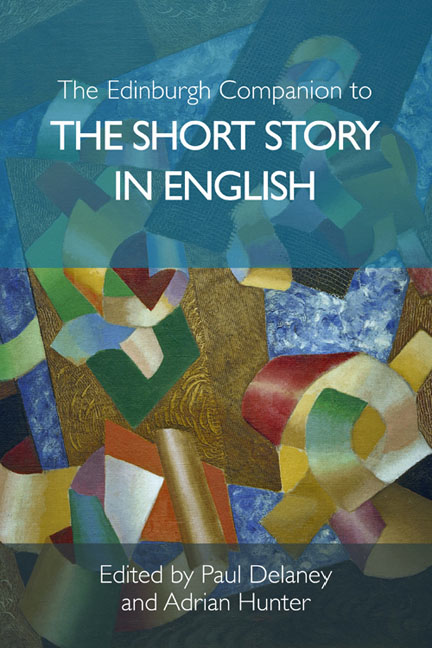Book contents
- Frontmatter
- Contents
- Acknowledgements
- Notes on Contributors
- Introduction
- Part I Historicising the Short Story
- Part II Publishing the Short Story
- Part III Forms of the Short Story
- Part IV Placing the Short Story
- 14 Regionalism and the Short Story
- 15 The Short Story and the City
- 16 The Short Story in Suburbia
- 17 The Short Story and the Environment
- Part V Identity and the Short Story
- Index of Short Story Titles
- General Index
17 - The Short Story and the Environment
from Part IV - Placing the Short Story
Published online by Cambridge University Press: 18 December 2019
- Frontmatter
- Contents
- Acknowledgements
- Notes on Contributors
- Introduction
- Part I Historicising the Short Story
- Part II Publishing the Short Story
- Part III Forms of the Short Story
- Part IV Placing the Short Story
- 14 Regionalism and the Short Story
- 15 The Short Story and the City
- 16 The Short Story in Suburbia
- 17 The Short Story and the Environment
- Part V Identity and the Short Story
- Index of Short Story Titles
- General Index
Summary
‘WHEN WE TRY TO PICK OUT anything by itself, we find it hitched to everything else in the universe.’ John Muir's description of the feeling of immanence he experienced in My First Summer in the Sierra (1911) also conveys a central issue within ecological thinking: interconnection. Thinking about interconnectivity has provided a challenge to ecocriticism, a critical approach which, to use Timothy Clark's helpful definition, enables ‘a study of the relationship between literature and the physical environment, usually considered from out of the global environmental crisis and its revisionist challenge to given modes of thought and practice’. This sense of emerging crisis means that it is no longer enough to posit a vague form of holistic interconnection. It is increasingly important to think about how things are ‘hitched’ to each other; about which connections – cultural as well as ecological – are most important.
Shifts in environmental awareness mean that traditional ways of describing and understanding the material world, including the places and geographies we find in the short story, need to evolve. The specific locales of Jack London's stories of Yukon mining or Alice Munro's Huron Country, for example, seem less splendidly isolated in the context of the 2015 debates about whether the Yukon or Ontario legislatures should allow fracking. Fracking can release contaminants into the water table that may leach across boundaries and borders, and it leads to the burning of fossil fuels that release greenhouse gases which shift the conditions of the entire biosphere. Ideas of neatly bounded places collapse in the face of such ecological awareness. The distinctions perceived between conceptions of ‘the human’ and ‘the natural’, the local and global, become permeable. This chapter focuses on what happens when short stories engage with a changing (sense of) environment. Thinking about the short story and the environment from an ecocritical perspective means working through different conceptions and representations of place (local environments), planet (The Environment writ large), and tradition (a cultural environment). Accordingly, this chapter ranges across spatial and temporal scales, from poetics of place to stories for a degraded world, and from idealised pasts to apocalyptic futures.
- Type
- Chapter
- Information
- The Edinburgh Companion to the Short Story in English , pp. 272 - 290Publisher: Edinburgh University PressPrint publication year: 2018

